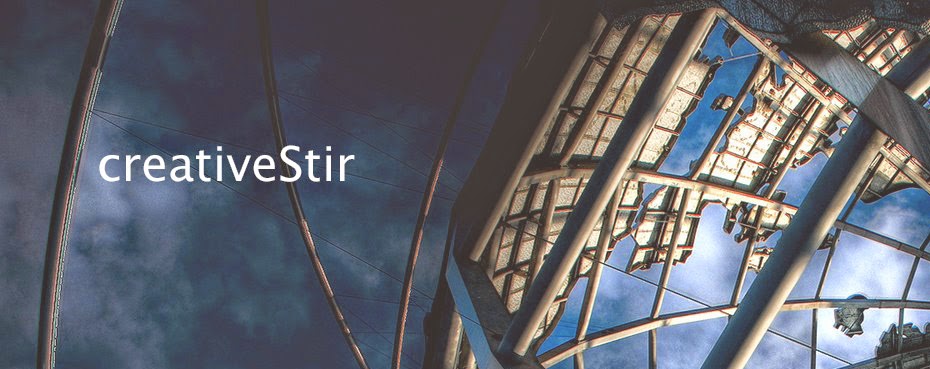So here I am… a two-hour delay after a snow day yesterday. I took the morning to sit down and write up some thoughts on the Educon conference I attended last weekend at the Science and Leadership Academy in Philadelphia. The conference, much like the personal learning network I have, the folks who's' posts on blogs and on Twitter I actively read, always help me move forward.
Educon is not your typical conference. The conference sessions must be collaborative, active discussions. Check out the Conversations page on the web site and you'll see what I'm talking about.
Here are the guiding principles of Educon straight from the web site:
- Our schools must be inquiry-driven, thoughtful and empowering for all members
- Our schools must be about co-creating — together with our students — the 21st Century Citizen
- Technology must serve pedagogy, not the other way around
- Technology must enable students to research, create, communicate and collaborate
- Learning can — and must — be networked
Here are the guiding principles of the Science and Leadership Academy (where the Educon conference is hosted and woven into):
1) How Do We Learn?
2) What Can We Create?
3) What Does It Mean To Lead?
The curriculum at SLA is built on the roots of UBD (Understanding by Design). It's a project-based curriculum built off the following process:
Inquiry
Research
Collaboration
Presentation
Reflection
Simple, common sense stuff… that takes a lot of work. Helping students learn is tough, and I've always thought it's far different than teaching. I've been doing project based design work for more than 10 years. It's challenging and, I feel, ultimately far more beneficial to students. It also keeps me fresh… the engagement, the sharing of ideas, the challenges of creativity.
The students at SLA were actively involved both in making the conference run and in the presentations themselves, as were the teachers there and the administration, most notably the Principal Chris Lehmann. It was easy to see how much they enjoy exploring learning and working together at SLA and it's sense of community. The process of learning is an active discussion there. It's was also easy to see some of the problems: Limitations of the building, budget and in the governing construct of the Philadelphia educational system.
Is Educon perfect? No. Was it considered exceptional by all attendees? No. Such are the trials of conferences I think and of education itself. There's a great discussion on this very topic going on in the blogshpere. These types of discussions, pre, during and post Educon are another reason why I like the conference so much: It's messy. There's as much, perhaps even more content to evaluate post Educon than during… and there's great strength in that as well. It's engagement. I think it's a sign of learning success.
I don't think there is a perfect system… for conferences or for education. I think we spend too much time talking about the perfect system. Instead we should direct our energy toward actively and positively trying improve systems. Educon, much like anything else, I think you get out of it what you put into it. The conference certainly gives everyone the opportunity to learn and collaborate.
There's a blog title out there (and a good read) called 'Learning is Messy' and it's a phrase I've used many times over the years, one that always seems to ring true for me. I like the refined simplicity of SLA's messages and the significant amount of work it takes to bring those simple goals to fruition... and the mess it tows with it, the active debate and discussions.
But here's the salt of what I've been thinking (at last): What I appreciate the most is the willingness of SLA to put itself under a microscope for the weekend, to open it's doors to roughly 500 attendees and it's clear goal to better itself from the process. They have the resolve to drive forward and try new things… and not just talk or complain about it. Many other schools could learn from that process, to turn themselves inside out and do some deep thinking. Hopefully that's not where it will stop though. Taking some action steps to improve things is next card to play.
Inquiry
Research
Collaboration
Presentation
Reflection
… Debate and Steps Forward.
… and then we do it again, and again. And that's how things get better.
When we lose pieces of that process, when we get stagnant, when 'Steps Forward' get bogged down in endless bureaucracy, when it falls under the weight of folks being truly negative or just plain stagnant… that's when people lose their spirit. That seems to be where students lose opportunities.
Now, I know this reflection isn't anything innovative… and I guess that's my point. It's just all good common sense… and what education, especially in the main, sorely needs to practice more often.
With any amount of luck I'll be headed back to Educon next year. If I'm doing it right, I'll have more challenging conversations, meet great folks to collaborate with, have more fun, and be more active, I'll challenge myself more… and hopefully that will all lead to some great steps forward for my students, school, and for myself.
Thanks for tuning in, AP
